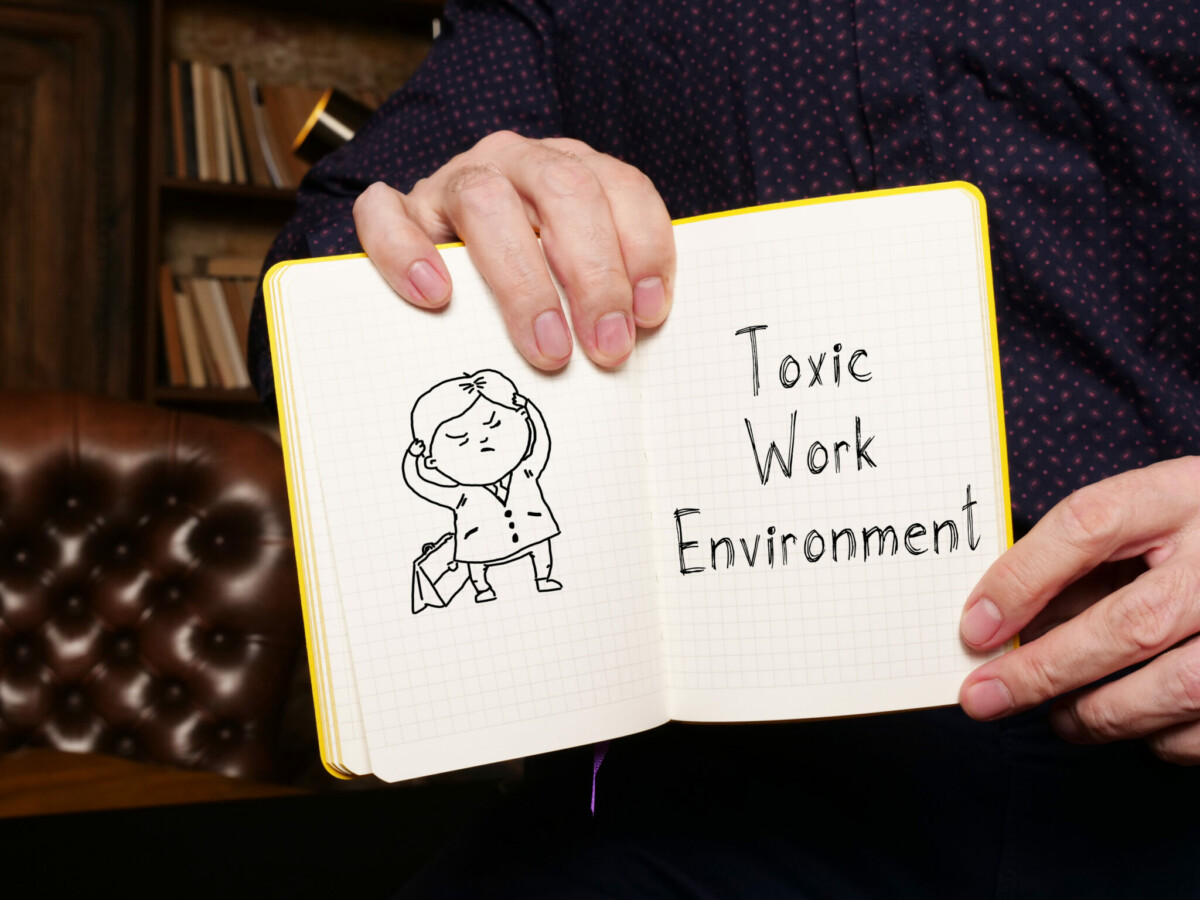
24 Mar How to Know When You Are in a Toxic Workplace
Do you feel like you’re in a toxic workplace? The signs aren’t always noticeable upfront, and you must pay close attention. The most prominent signs of a toxic work environment include sexual harassment, workplace intimidation, racial discrimination, high turnover, among other factors.
A toxic workplace isn’t always illegal, but it may indicate illegal behavior behind the scenes. If you’re dealing with an unlawful workplace, contact an employment attorney. They can guide you on the best course of action, such as filing a complaint with the U.S. Equal Employment Opportunity Commission (EEOC) or filing a civil suit.
This article will highlight toxic workplace conduct in greater detail. Let’s explore.
Rumors and Gossip
 Work environments that contain cliques can stoke paranoia and stress. As a result, employees may not work with one another if they don’t belong to a particular social circle. Perhaps you feel ostracized by your fellow employees, or you may see others excluded from a group.
Work environments that contain cliques can stoke paranoia and stress. As a result, employees may not work with one another if they don’t belong to a particular social circle. Perhaps you feel ostracized by your fellow employees, or you may see others excluded from a group.
Social cliques aren’t unlawful, but they could be a sign of underlying trouble. Therefore, listen closely around you to find hidden issues within the workplace.
You could hear rumors about sexual harassment or any other unlawful workplace misconduct. If you hear these rumors, take them seriously.
Unwelcome Behavior
You may be the subject of subtle or overt aggression. These transgressions can take the form of sexual harassment, harassment, intimidation, or bullying.
Are you the target of inappropriate comments consistently? One-time unwarranted comments are unacceptable as well, and the offender should face repercussions.
If not, that’s another sign of a toxic work environment. If an employee or supervisor doesn’t face the consequences, they will feel emboldened enough to continue the behavior.
The Boys Club
 Women may notice a boys club if the men alone hold top-tier positions. Do you notice a lack of minority representation within the workforce? Are qualified women and minorities passed over for promotions routinely?
Women may notice a boys club if the men alone hold top-tier positions. Do you notice a lack of minority representation within the workforce? Are qualified women and minorities passed over for promotions routinely?
Women may also hold menial tasks or the lowest positions within the company. This type of atmosphere fuels a culture of sexual harassment.
Some men will use their power to harass or intimidate women. If a woman refuses an employer’s sexual advances, she could face retaliation in some form, such as demotion or firing.
Employer Retaliation
Employer retaliation is against the law. Many employees don’t report misconduct for fear of losing their jobs. An employer could retaliate against a subordinate for the following reasons:
- If the employee filed a labor complaint
- If the employee filed a discrimination complaint
- If the employee complained about wages
- If an employee makes an ADA request
If you’re the subject of employer retaliation, involve an employment law attorney immediately. Even if you hear rumors of workplace retaliation, you may be in a toxic environment. Plus, keep an ear out for repeated complaints against employees or supervisors.
Unusually High Turnover
If you hear about numerous complaints against workers or bosses, you may also notice that workers come and go fairly quickly. If you notice new employees leaving within a year, consider this a red flag. The high turnover rate may stem from a variety of reasons, such as:
- Poor morale
- Team dysfunction
- Employer mismanagement
You may also notice employees calling in sick more often. Employees may feel tired or stressed from being in a hostile work environment. Ask yourself the following questions:
 Do employees engage with one another in a friendly manner?
Do employees engage with one another in a friendly manner?- Does anyone talk at all?
- Do they seem happy to be there?
- Are they positive and upbeat?
- Workers who constantly feel tense will eventually burn out and quit.
- Lacking Communication
This is a more subtle sign of workplace toxicity. A lack of communication could manifest if employers fire employees without notice. Employers could slowly fire or lay off employees to avoid suspicion.
Also, your employer may not give you the necessary feedback you need to complete your job successfully. The assignments given could be unclear, leaving workers frustrated and confused.
Even though poor communication isn’t illegal, it could be a sign of a deeper problem within the company.
Ongoing Work
Are you working even when you’re not at work? You may feel like you can never get a break from the workplace. You may also work while on vacation.
All of these red flags indicate that management is taking advantage of you. As an employee, you need time away from work to recharge your batteries.
Failure to take necessary breaks could lead to exhaustion and stress. Worst of all, overexertion can hamper your physical and mental health.
Overwork can be illegal in some cases, mainly if employees aren’t being compensated for overtime. According to federal law, employees working over 40 hours a week must receive overtime pay unless that business falls under an exemption. Your employer must adhere to California labor standards as well.
Contact an employment law attorney if you’re working full-time hours without overtime. Generally, employees must have a minimum 10-minute break every four hours and a 30-minute break for eight hours of ongoing work.
What Should I Do If I’m In a Toxic Workplace?
Above all, do everything you can to remove yourself from the environment. If you’re the victim of illegal behavior in the workplace, hire an attorney familiar with employment laws.
A toxic workplace could highlight illegal practices within the workplace. Illegal behavior may include sexual harassment, overtime without pay, employer retaliation, harassment, bullying, racial discrimination, etc.
Do you need to know more about wrongful termination in the age of covid? Click here to learn more.
